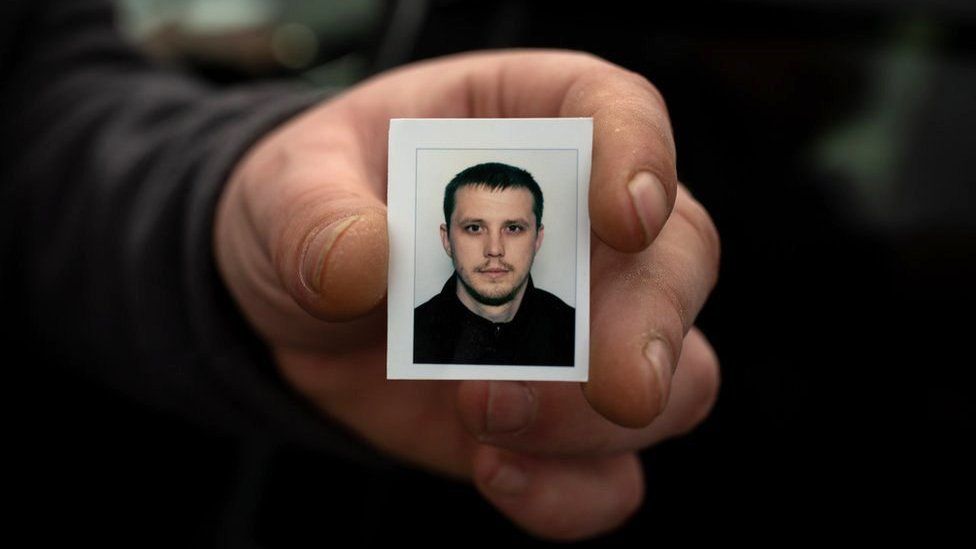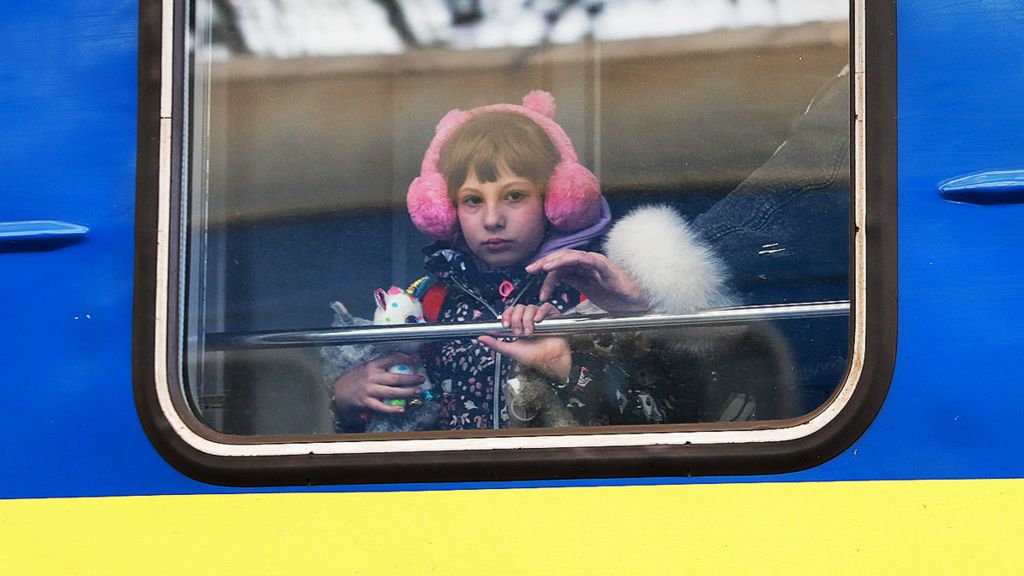Nikita Horban was abducted from his village and taken to Russia. He would come back without any toes.
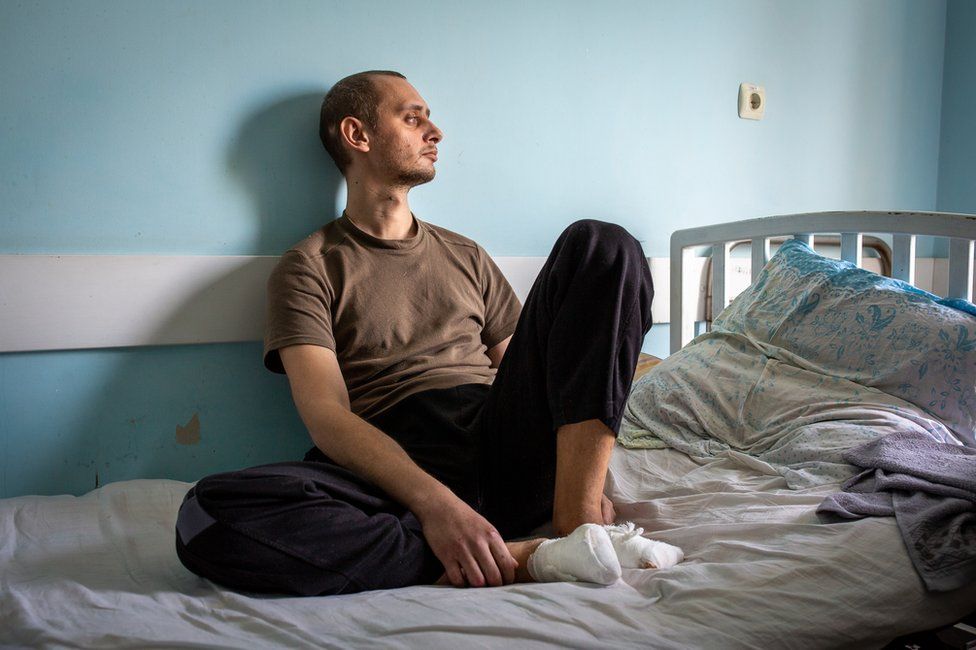

Nikita Horban was sitting cross-legged on an old-fashioned steel hospital bed, running his fingers over the flat part of the bandage where his toes used to be.
He was still wearing the clothes the Russians sent him home in – a military green t-shirt and tracksuit bottoms. He looked pale and gaunt, older than 31.
“I have lost a lot of weight,” he said, looking down. “I don’t look good.”
He shifted position on the bed. It had been about two weeks since he’d been able to stand, and he had to move his legs regularly to stop them aching. It was a bright spring day in Zaporizhzhya, in the south of Ukraine, but the Russians were running bombing raids in the region and the windows in the hospital were blacked out. The air on the ward was hot and stale.
Nikita had been handed back to Ukraine just three days earlier, as part of a prisoner exchange, and brought to this hospital with another man. They had spent three grim weeks in a prison in Russia. The other man, Serhiy Vasylyha, 28, was returned with both feet amputated. “He was not as lucky as me,” Nikita said.
The prisoner swaps are being negotiated by Ukraine’s deputy prime minister, Iryna Vereshchuk. “There were badly injured people in this exchange – amputated limbs, sepsis, other severe injuries,” Vereshchuk told me.
“There were clear signs of torture,” she said. “The stories they told us are terrible.”

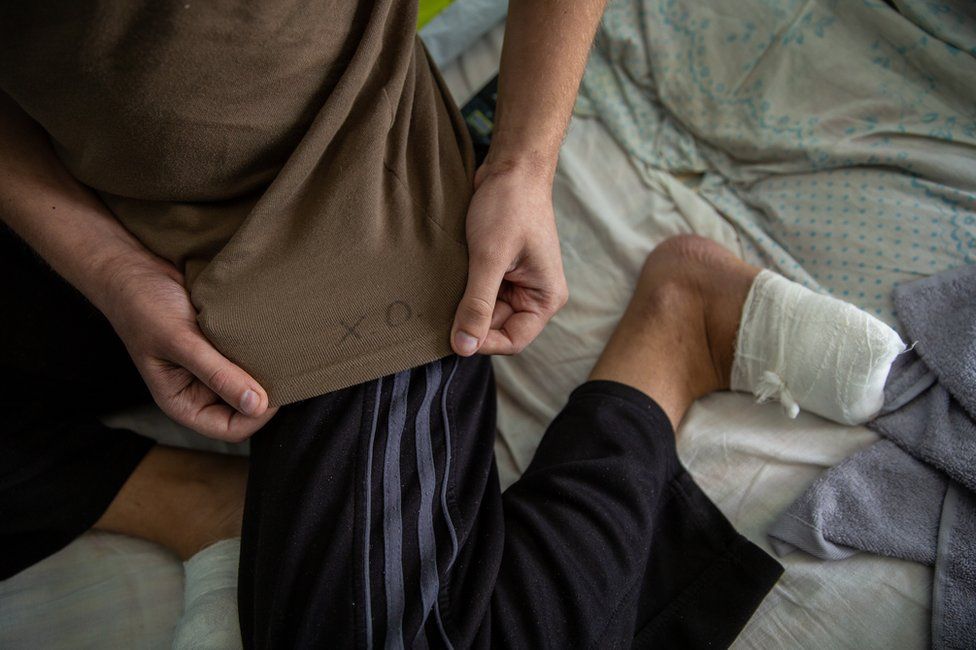

Nikita’s ordeal began in early March when the Russian army rolled into Andriivka, a small village west of Kyiv. Nikita, a lab assistant at a Kyiv hospital, was hiding in a cold, damp cellar under the garden with his father Sasha, their wives, and Nikita’s five-year-old son. Sasha was Nikita’s stepfather but the distinction had long faded. They called each other father and son.
The Russians were going house to house, and they pulled the two men out of the cellar and beat them, Nikita said. “There was shooting, people in the village were being killed, it was terrifying.”
They were blindfolded and taken at gunpoint to what seemed like a field, where they were tortured. Nikita has a fresh scar on his knuckle, which he said was caused by the Russians tightening a wrench around the knuckle and turning it until the skin tore open. He could hear others around him, but he didn’t know how many or who.
“All I can remember thinking is where is my father? What if he is not with me anymore?”
The Russians took away their boots, filled them with water and put them back on. Then the prisoners were forced to lie face down on the field in the freezing cold. “We lay like that for three or four nights, under the rain, getting colder and colder,” Nikita said.

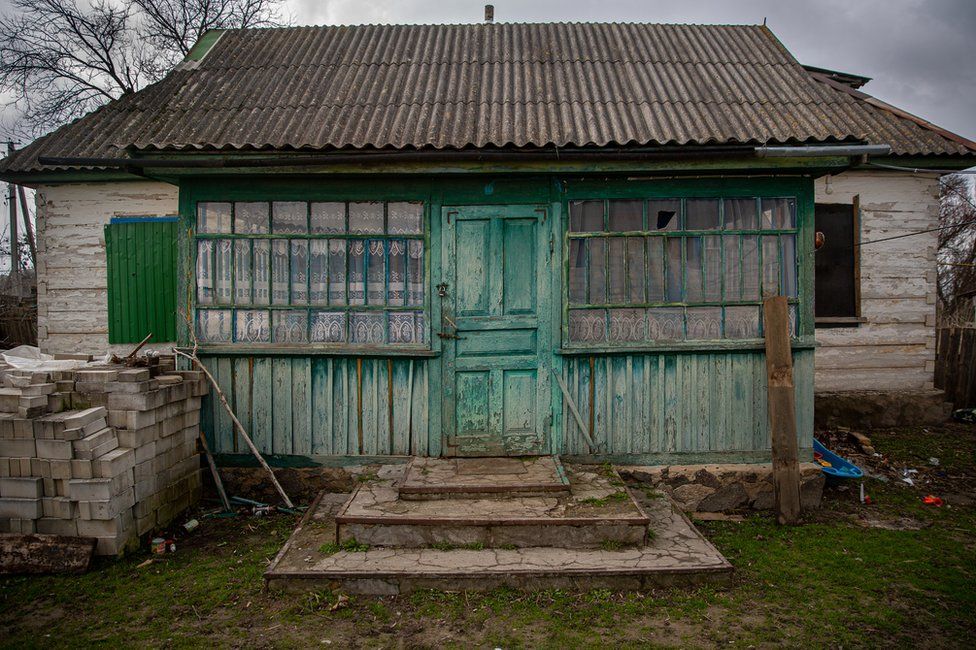

When he could no longer hear the Russians nearby, Nikita called out quietly, “Dad are you there?” And Sasha’s voice came quietly back. They were together. From that point, they would keep talking whenever it seemed safe, reassuring each other they were close.
As they lay in the field, a deep cold set into Nikita’s feet. Soon he could not feel them at all. Then shells started falling close to them, announcing themselves with earth-shaking booms. “We lay for a long time like that on the ground, saying goodbye to our lives over and over again,” Nikita said.
Eventually, they were hauled up from the ground and loaded onto trucks. Blindfolded, Nikita struggled to gauge how much time was passing. At some point, they were combined with another group of prisoners and loaded onto helicopters. Hunger was setting in – they had only been given one bowl of porridge, a piece of bread and a biscuit since they were taken, Nikita said.
From the helicopters they were transferred onto a cargo plane. Nikita felt the engines revving and the plane speeding down the runway and taking off. He guessed he was with about 10 or 12 other prisoners.
“Are you OK?” he said aloud, over the sound of the engines.
“Yes, I’m OK,” Sasha replied.

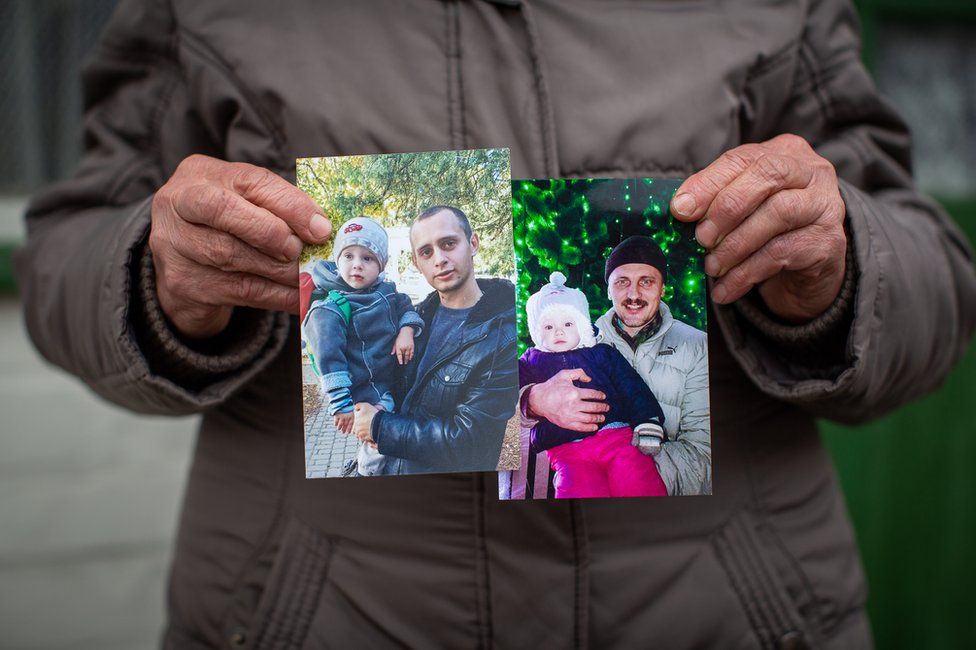

Back in the village, Nikita and Sasha’s wives, Nadia and Svitlana, and Nikita’s son Artem had moved from their cellar to a bigger shelter under the neighbour’s house. They had no idea where their husbands were.
A few houses over, Sasha’s parents, Nadia and Volodymyr, were also beginning to worry. Sasha had stopped answering their calls, but it was impossible to venture out of the house to find out if he was safe. Shells were raining down around the village, and during pauses in the bombardment Russian soldiers would ransack houses. For more than a month, during the occupation, no family group would know if any other was alive.
At some point, Nikita and Sasha crossed into Russian airspace, and the cargo plane began to descend. They were taken to a detention camp where their blindfolds were finally removed and they saw each other. They embraced. The Russians had also used the wrench on Sasha’s knuckle, Nikita said, but worse, and one of his fingers was hanging by a small amount of tissue and skin. He was taken to a field hospital for treatment.
With the blindfold off, Nikita could finally see his feet. His toes had turned black. He knew he was getting severe frostbite from the cold and he asked for medical attention. At the field hospital, they dried and bandaged his toes but that was it. They put his boots back on and after five days in the camp the prisoners were transported by truck to the Pre-Trial Detention Centre Number 1 – a prison in the Russian city of Kursk.

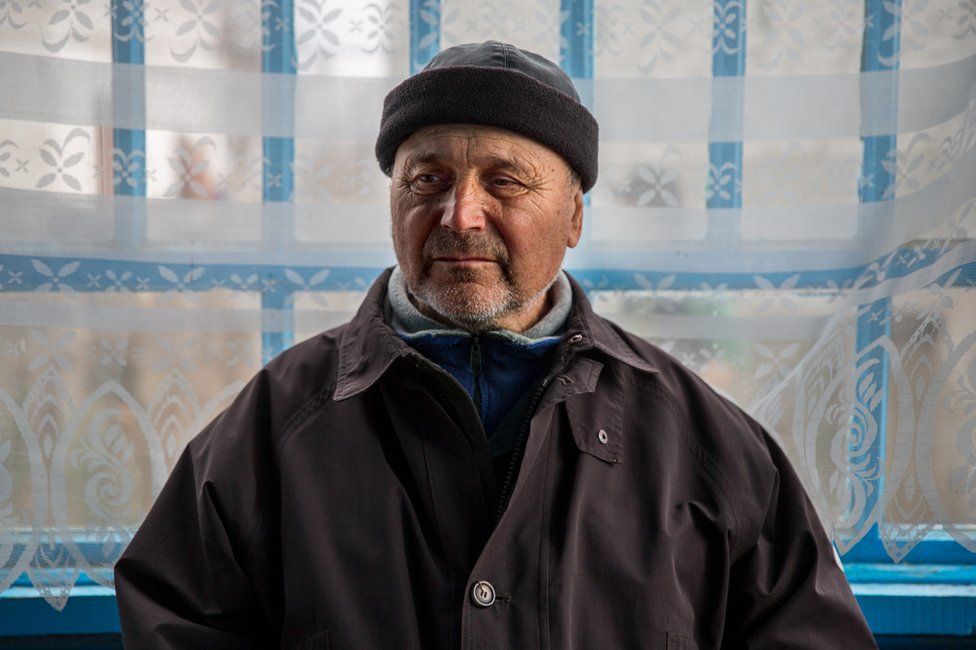

The new inmates were put in uniforms and had their hair cut and were told they would be “vaccinated”, which turned out to be a euphemism for a beating, Nikita said. By the time he and Sasha were locked in a cell with 10 others, Nikita was becoming convinced he could lose both his legs.
“That first night I realised I could neither feel nor control my feet at all,” he recalled. “And they had started to smell awful.”
Others were facing the same grim situation. Some would later lose entire limbs. The care at the prison was minimal – an antibiotic shot and bandage changes once every three days. According to Nikita, the prison doctor told him: “We have good medicine and medical treatment here, but it is not for you.”
The prisoners kept each other entertained in the cell by talking about their families and telling jokes. They were forced to learn patriotic Russian songs by heart and perform them for the guards, Nikita said. “The anthem of Russia, another disgusting Putin-glorifying song. They gave them to us in the morning and told us to learn them by lunchtime,” he said.
They were interrogated two or three times a day and beaten, he said. Afterwards they were forced to sign documents declaring they had been treated and fed well and not harmed, which is how they learned where they were, because the documents were stamped “Kursk Pre-Trial Detention Centre 1”.

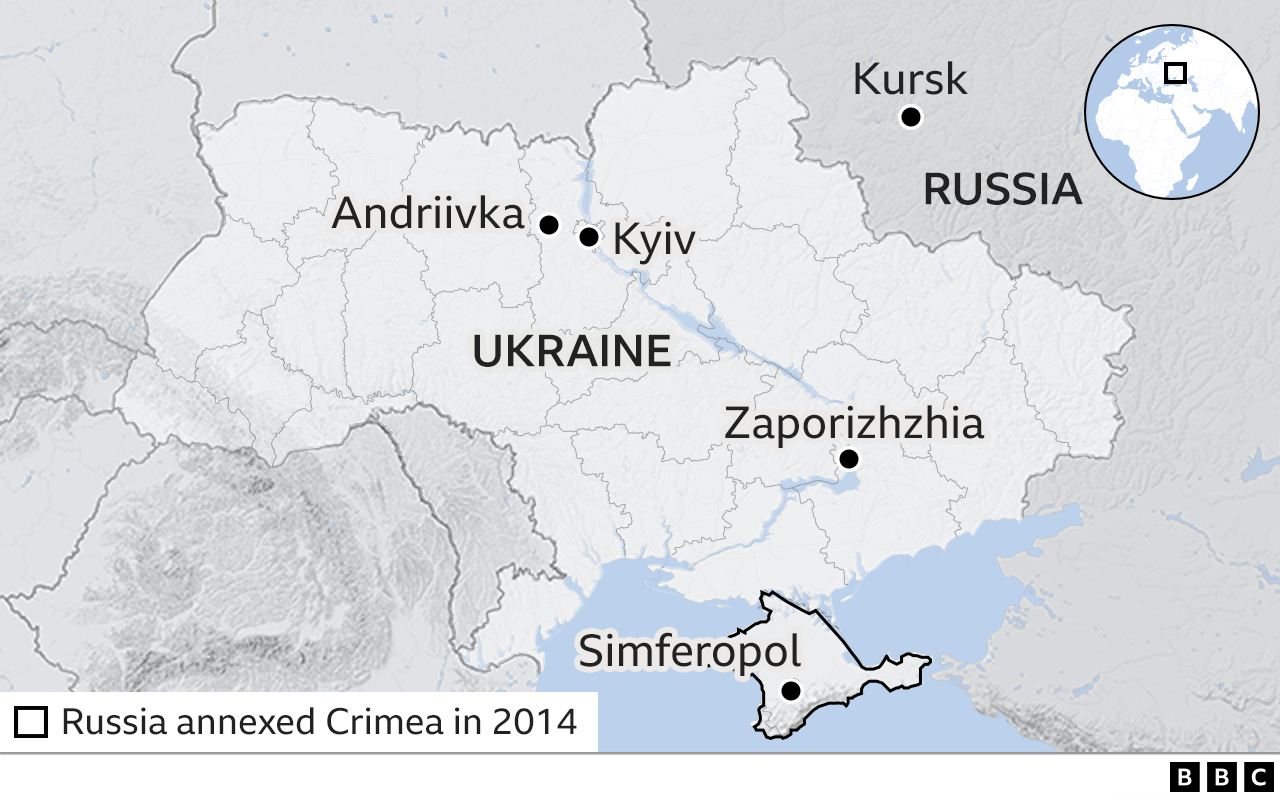

After three weeks in the prison, the condition of Nikita’s feet had worsened dramatically, and he was finally transferred to hospital with two others. A surgeon told him he was going to have all his toes amputated. “They were in such bad condition by then that during the examination one of my toes just fell off.”
He spent a week in the hospital after his surgery, before an official there told him that he and several other badly wounded men would be sent home “to be taken care of by your families instead”.
Vereshchuk, the deputy prime minister, told me the Russians had tried to exchange civilian hostages for Russian military prisoners in Ukraine – a move forbidden by the Geneva Convention. “That’s why they captured all these hostages – civilians, women, employees of local councils, to try and use them,” she said.
“We know there are more than a thousand hostages there – including almost 500 women. We know they are in prisons and pre-trial detention centres in in Kursk, in Briansk, in Riazan, in Rostov.”
Nikita was never taken back to the prison in Kursk, where he had last seen Sasha. From the hospital, he was loaded once again onto a cargo plane, this time to Simferopol in Crimea. The Russian authorities told Vereshchuk they had no ambulances spare, so gravely injured prisoners were put in the back of empty flatbed trucks for the five-hour drive to the exchange.

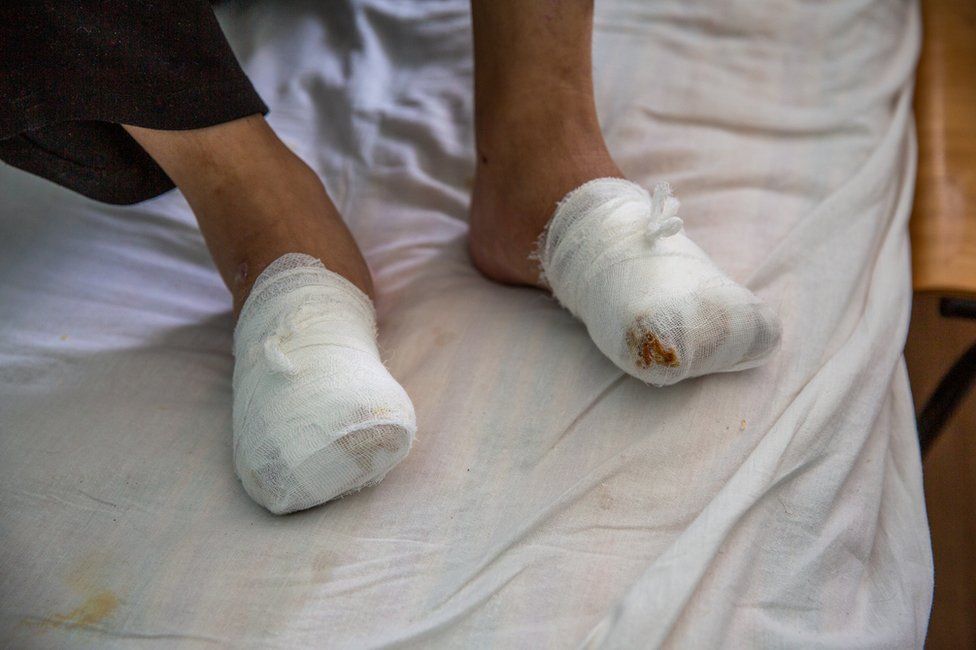

At the meeting point, the Russians laid the wounded men on the highway on their stretchers and walked away, and Ukrainian soldiers came and picked them up. Nikita still didn’t believe he was in Ukraine, he said, right up until the moment one of the soldiers looked him in the eyes and said in Ukrainian, “Welcome back buddy.”
“I was in pieces,” he said. “I knew I was back in my homeland.”
But he didn’t know if his family was alive. He knew nothing of what had happened in Ukraine in the past month. Nikita gave a Ukrainian official the number for his wife Nadia and waited, his heart pounding in his chest.
“I was just waiting for the dialling sound, to know at least that her phone was alive,” he said. “Then it started dialling and she declined the call, and I knew she was alive.”
On the second attempt, Nadia picked up. She told him she was in Belgium with Artem and they were safe. “For five minutes we just cried into the phone,” Nikita said. “We tried to talk to each other but we couldn’t. There were tears running down my cheeks. I just heard her say hello and I couldn’t take a breath.”
Nadia called Sasha’s brother Vyacheslav, and his parents Nadia and Volodymyr, to let them know the news. But there was a big piece still missing. “We know now that Sasha was alive when Nikita left but that was two weeks ago,” his mother Nadia told me. “So we are still here waiting and hoping. We are still not doing good.”

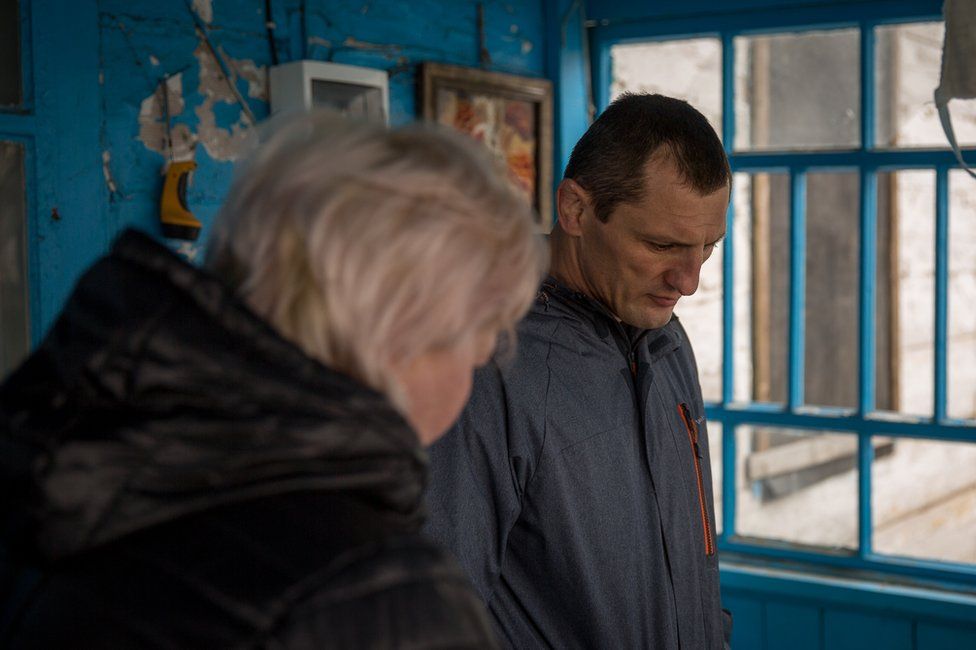

Since his arrival in back in Ukraine, Nikita had been trying to arrange a transfer from Zaporizhzhya to the hospital in Kyiv where he worked. It appeared to be stalled. Then suddenly, early on Tuesday morning, a nurse came in to tell him he was going home.
After a long ambulance journey across the country, Nikita was wheeled in to a hero’s welcome from his colleagues at the Kyiv Civilian Hospital No 5. He was taken up to a private room with a large open window overlooking pine trees. About mid-morning on Wednesday, the chief of medicine and chief surgeon came to visit him. They had been waiting nervously for news of Nikita, and they were both brought to tears by his return. Two of their other colleagues, a married couple, had recently been killed with their children by a Russian shell.
“It means everything to us to have him back,” said the surgeon, Yuriy Shylenko. “He will need to relearn to walk, but we are going to do everything for him.”
Nikita put on a pair of hospital slippers and showed off his progress by standing and taking a few steps. The doctors were talking through his recovery plans. But he wasn’t really listening. “I have only one thing on my mind,” he said, after they’d left. “Going to my wife and son.”

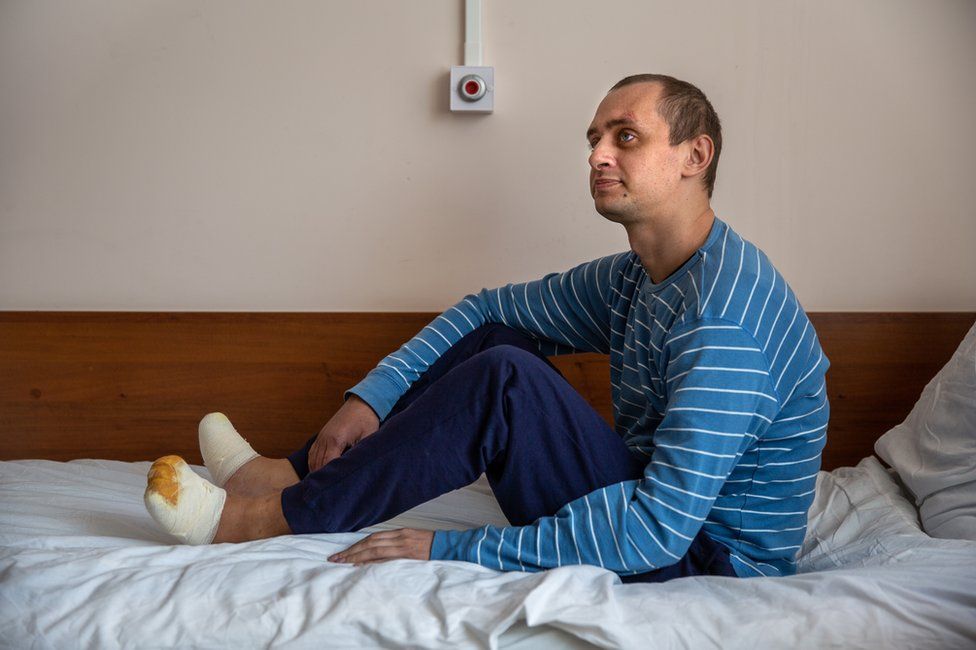

Anna Pantyukhova contributed to this report.
-
- 13 April
